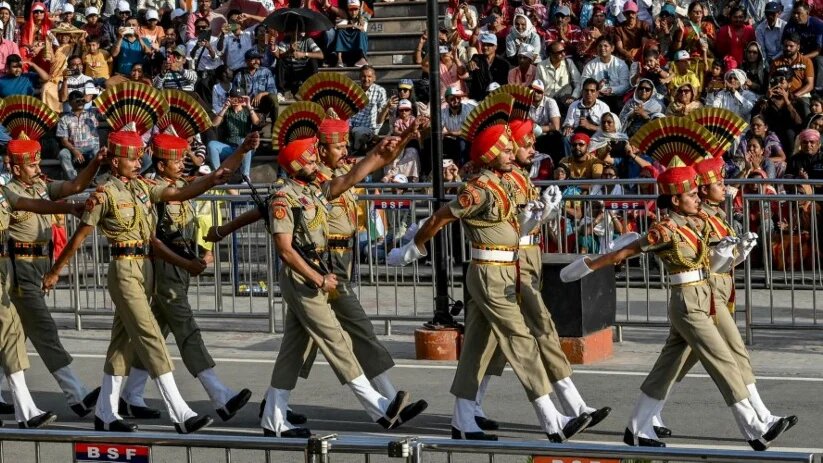By: Aaqib Abbasi
The recent tragedy in Pahalgam, Indian-administered Kashmir, has once again reignited tensions between the two nuclear-armed neighbors India and Pakistan. But what we are witnessing today is not merely a geopolitical conflict over borders. It’s a battle of narratives, egos, and ideologies, fought at the cost of innocent lives. This is not just about Pulwama, Samjhauta Express, or Pahalgam. This is a region haunted by its unresolved history, and the people on both sides continue to pay the price.
On April 22, 2025, a brutal terrorist attack shook Pahalgam, a scenic town in Anantnag district of Jammu and Kashmir, nestled in the valley at an altitude of 7,200 feet. Known for its spiritual and tourism significance, Pahalgam was turned into a scene of devastation, with more than 25 innocent civilians reportedly killed. India was quick to lay blame on Pakistan, an accusation that Islamabad strongly rejected. Pakistan not only condemned the attack but also offered a joint investigation to uncover the perpetrators an offer that was not taken up by New Delhi.
In an unprecedented move, India suspended the Indus Waters Treaty, a pact brokered by the World Bank in 1960 that had survived even the Indo-Pak wars of 1965 and 1971. Pakistan termed this suspension an act of war. Tensions escalated rapidly.
On May 7, 2025, India launched “Operation Sindoor” targeting alleged militant camps in Pakistan and Pakistan administered Kashmir. Pakistan, considering this a breach of its sovereignty, retaliated by downing five Indian fighter jets, including Rafale aircraft, and vowed to respond decisively. On May 10, India carried out missile strikes on Pakistani air bases. Pakistan responded with “Operation Bunyan Un Marsoos,” destroying key Indian military assets including airbases, BrahMos missile storage units, and S-400 air defense systems.
The Line of Control (LoC) became a continuous battlefront, and the world watched with bated breath as two atomic powers edged dangerously close to full-scale war. It was at this critical juncture that former U.S. President Donald J. Trump intervened, brokering a ceasefire between the two nations. Though temporarily effective, this ceasefire did not resolve the core issues at hand especially the lingering Kashmir dispute.
India’s ruling party, led by Prime Minister Narendra Modi, portrayed the developments as a national victory, attempting to revive political fortunes amid declining popularity ahead of elections in Bihar. However, international media and independent observers presented a more nuanced picture. Pakistan’s military response, diplomacy, and narrative management won considerable recognition on the global stage.
But behind this high-stakes diplomatic chess game lies the most tragic reality: the loss of innocent lives on both sides. Families are grieving, children are orphaned, and communities are devastated. And while leaders’ posture and media fuels nationalism, the ordinary citizen continues to suffer.
The critical question remains: Does a ceasefire mean the war is over? Absolutely not! The Kashmir issue disputed by India, Pakistan, and also partially claimed by China remains unresolved since the 1947 partition. It continues to serve as a flashpoint for regional instability and conflict.
Prime Minister Modi’s post-ceasefire warning that any future terrorist act on Indian soil will invite an even stronger response raises grave concerns. The risk of generalizing terrorism through a communal lens linking it exclusively to Muslims or Pakistanis can prove even more fatal than the physical conflict. Such narratives, often driven by political agendas, deepen divides and blind the public to the broader complexities of regional terrorism, which is neither confined to one religion nor one nationality.
In a region where over 64.9% of India’s population and 42.4% of Pakistan’s population live below the poverty line (based on multidimensional poverty indices), the very idea of war is economically and morally indefensible. South Asia cannot afford to burn while its people cry out for food, health care, education, and economic opportunities.
The real victory lies in fighting poverty, illiteracy, extremism, and intolerance, not in flexing military muscle or fanning the flames of hatred. Political stability and regional cooperation are the only sustainable paths forward.
It’s time the global community begins to view terrorism beyond religious or national identities. A terrorist is a terrorist, regardless of whether they are Muslim, Hindu, Christian, or of any other faith. If this principle is not universally accepted, we risk plunging deeper into a perpetual state of “no war but war” a condition where the conflict never truly ends, even if the bombs stop falling.
Dialogue, not destruction, must define the future of Indo-Pak relations. The people of both nations deserve better. Kashmiris deserve a peaceful resolution. The subcontinent deserves a new vision one rooted in peace, mutual respect, and shared prosperity. But for that to happen, both India and Pakistan must act with responsibility, maturity, and foresight. It’s time to end the cycle, before the cycle ends us.
The writer is a freelance columnist







